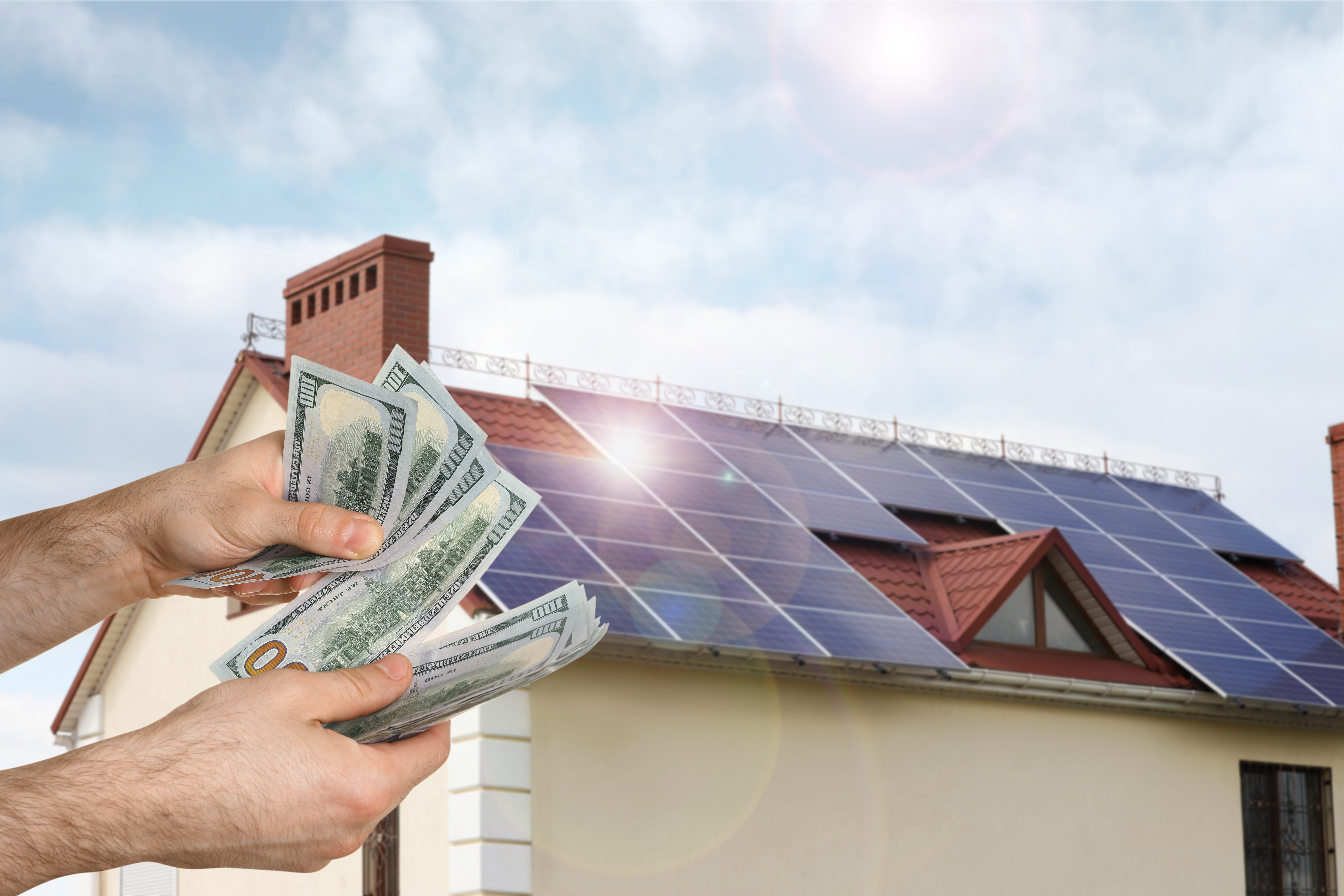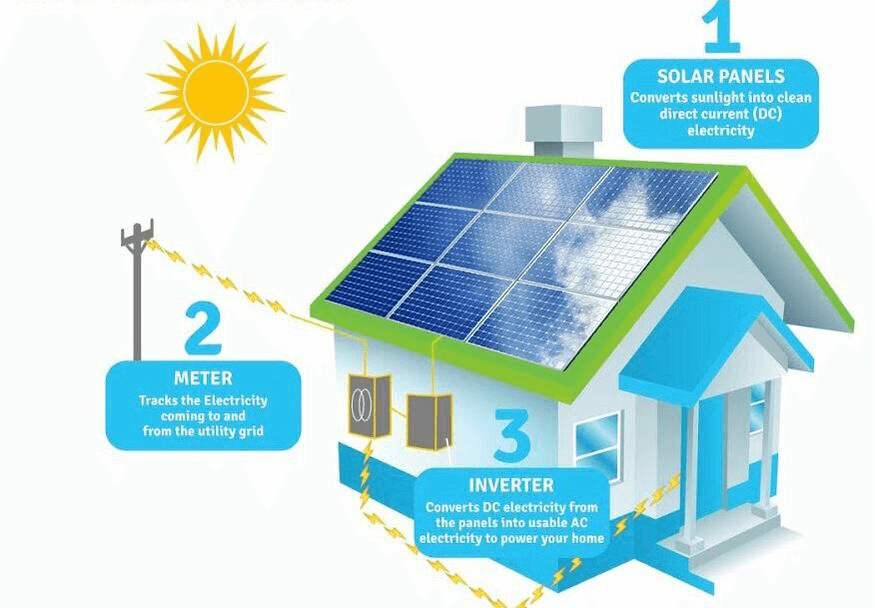Simply Solar Illinois: Green Solar Solutions to Light Up Your Home
Simply Solar Illinois: Green Solar Solutions to Light Up Your Home
Blog Article
Just How Solar Power Can Aid You Conserve Money and Lower Your Carbon Impact
The integration of solar power right into your power profile provides a compelling opportunity for both financial savings and environmental stewardship. By utilizing the sun's energy, property owners can considerably decrease their monthly utility expenditures while additionally securing against the unpredictability of future energy prices. Furthermore, the change to solar adds to a significant reduction in carbon discharges, lining up personal financing with broader ecological goals. As various government motivations appear, the concern develops: just how can one successfully navigate the initial financial investments and continuous benefits of solar modern technology to maximize both financial and environmental gains?
Recognizing Solar Power Financial Savings
While the change to solar power usually entails an initial investment, understanding solar power cost savings is critical for homeowners and services alike. Solar power systems can substantially lower electricity bills by taking advantage of the sunlight's energy, equating into considerable long-lasting monetary benefits.
Additionally, solar energy systems might get numerous financial rewards, including tax credit reports and discounts, better boosting their cost-effectiveness. The schedule of internet metering permits users to sell excess energy back to the grid, creating an additional income stream. These elements add to the overall savings associated with solar power.

Along with direct monetary financial savings, solar energy provides the included benefit of raising residential property value. Homes furnished with photovoltaic panels are usually more appealing to purchasers, as they guarantee lower power prices - Simply Solar Illinois. Recognizing these elements is important for anybody thinking about solar power, as it highlights not just the potential economic gains, yet additionally the wider environmental and economic advantages of taking on renewable resource options
Preliminary Prices vs. Long-Term Perks
When examining solar energy, it is very important to evaluate the preliminary expenses against the long-lasting benefits. The in advance financial investment for solar panels, setup, and associated equipment can be substantial, typically ranging from $15,000 to $30,000, depending upon the system size and home energy demands. This initial expense may prevent some home owners; however, it is vital to take into consideration the possible savings in time.
When installed, solar energy systems can dramatically reduce and even get rid of month-to-month electrical energy bills, bring about substantial lasting monetary advantages. Studies show that homeowners can conserve anywhere from $10,000 to $30,000 over the lifespan of their solar system, typically 25 years. Furthermore, many states provide motivations, tax credits, and refunds that can offset preliminary prices, making solar much more obtainable.

Minimizing Your Carbon Impact
Minimizing your carbon footprint is an important consideration in today's ecologically aware culture, and embracing solar energy is one of one of the most effective methods to achieve this goal. Solar power is a clean, sustainable resource that dramatically diminishes dependence on nonrenewable fuel sources, which are significant contributors to greenhouse gas exhausts.

Additionally, the prevalent fostering of solar technology urges the growth of eco-friendly tasks and supports innovations in power storage space and effectiveness. The more individuals and organizations buy solar power, the higher the collective reduction in carbon discharges, cultivating a cleaner environment for future generations.
Federal Government Incentives and Rebates
Embracing solar power not only profits the setting however can likewise bring about considerable monetary cost savings, particularly with the schedule of government rewards and discounts. Various federal, state, and neighborhood programs are designed to motivate home owners and companies to purchase solar power systems, making the transition much more economical.
Among one of the most popular rewards is the Federal Financial Investment Tax Obligation Debt (ITC), which allows solar system owners to deduct a significant percent of the installation costs from their federal tax obligations. This motivation has actually been pivotal in minimizing the ahead of time expenditures related to solar click now power systems. Additionally, numerous states use their very own tax debts, grants, and rebates that can better improve savings.
Moreover, some city governments supply real estate tax exceptions for solar installments, making certain that home owners do not encounter boosted residential property why not try this out tax obligations as a result of their renewable resource financial investments. Energy companies might additionally use rewards, including internet metering and feed-in tolls, which enable solar power users to market excess power back to the grid.
Picking the Right Solar System
Selecting the appropriate solar system is crucial for making the most of energy performance and economic benefits. The decision depends upon a number of elements, consisting of power demands, budget plan, and readily available space. House owners must start by examining their power intake to identify the system dimension required for optimum performance.
Following, think about the different kinds of solar technologies readily available. Simply Solar Illinois. Photovoltaic (PV) panels are one of the most common, transforming sunlight straight into electrical power, while solar thermal systems concentrate on heating water. Each kind has distinct benefits depending on private needs
Budget plan factors to consider are also extremely important. Initial setup prices can vary dramatically, so it is very important to contrast quotes from multiple carriers and explore funding alternatives. Government motivations and refunds can further minimize the economic concern, making planetary systems much more accessible.
Final Thought
The environmental benefits of solar power contribute to lasting methods crucial for combating climate adjustment. Federal government rewards improve the feasibility of solar technology fostering, urging a shift towards a cleaner, more financially effective energy resource.
Report this page